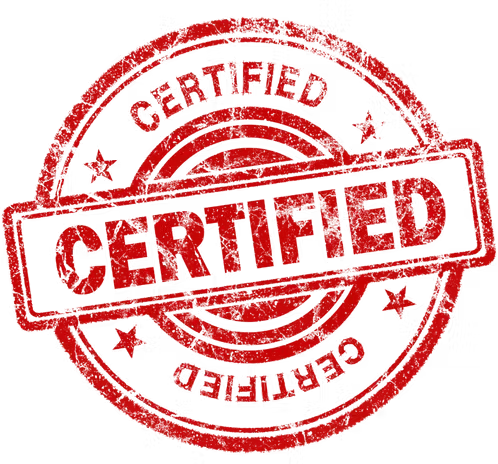202-880-5134
SERVICES
Coaching the Coach
202-880-5134
ABOUT JARED
I am an award-winning Middle, High School Teacher, Former High Level Athlete and Professional Writer
Turned into a super-charged Executive Functioning, Life, Parent, and Recovery Coach
Launch Your Coaching Business
How to Start a Coaching Business or Increase Your Existing Business Reach and Revenue
The coaching industry is experiencing explosive growth, and there are now more than 100,000 practitioners worldwide, according to the latest study conducted by the International Coaching Foundation.
If you’re just getting your foot in the door during this period of rapid expansion, how do you start a coaching business?
Continue reading to learn how to launch a coaching business as well as uncover answers to common questions you may have when getting started as a coach.
Define Your “Why” For Coaching
Defining your values – or your “why” for being a coach – is a good place to start when launching a coaching business.
While’s there no right (or wrong) answer here, getting clear on your why can really help you in other areas of establishing and growing your coaching business.
If your why is to do more meaningful work, for instance, this principle can support you in identifying your ideal coaching clients. Similarly, if you’re clear that achieving financial independence is a guiding factor for your business, you’ll want this goal to inform how to package and price your coaching services.
Discover Your Coaching Niche
As you gain clarity around your “why,” it’s also helpful to think about who you want to serve. The right niche allows you to connect deeply with clients who truly benefit from your guidance—and to feel inspired by the work you do.
Step 1: Explore Your Coaching Style
Start by considering the type of coaching you’re passionate about offering. Some possibilities include:
Life coaching
Health coaching
Career coaching
Business coaching
Executive coaching
Leadership coaching
Step 2: Picture Your Ideal Client
Once you know the type of coaching you offer, imagine the clients you most want to support:
Challenges & Pain Points: What hurdles are they facing? Where do they most need guidance? What should the priorities be?
Desired Outcomes: What transformation or results do they hope to achieve?
Personality & Lifestyle: What qualities, habits, and interests make a client a great fit for your coaching style?
Step 3: Attract the Clients You’re Meant to Serve
Think about how you can reach clients who will benefit most from your expertise—those who value your guidance and are excited to work with you.
💡 When you align your coaching services with your passion and your ideal clients’ needs, you create meaningful connections—and set your business up for lasting success.
Package and Pricing Your
Coaching Services
Next, a tricky area for new coaches is packaging and pricing their services, especially given that there’s so much competing data on the average cost of a coaching session.
When first gaining experience as a coach, it’s common to charge by the session. However, as your coaching business grows and you better understand the needs of your clients, you’ll want to experiment with different packages and service offerings.
You can also toy with providing complementary services beyond just coaching sessions to deliver additional value, which may include:
Group coaching or networking opportunities
Group coaching or networking opportunities
Email, text message, or email support
Assessments and inventories
Email, text message, or email support
Moreover, you need to remember the insights people gain from coaching extend well beyond the session, so you must price your services accordingly.
Also, don’t feel like your current price has to be your forever price. You can always increase your prices down the line as you develop your coaching skills.
Invest in Coach Training and Certification
Speaking of which, coach training and certification are worth considering because the coaching industry is currently unregulated. Not only do coach training and certification allow you to improve and deepen your skills, but they can also set you apart from your 100,000+ competitors. There are countless coaching training programs out there, so you’ll want to find the ones that align with your business goals and client demographics.
Here’s an article that explores where to study coaching.

Start Small
As coaches, we support people in making measurable progress toward their goals. However, when it comes to our own goals, this principle can sometimes unintentionally go out the window, especially when it comes to our businesses.
You might be tempted to take on many of the items listed in this article, but trying to do too much is a recipe for burnout. Rather, try to focus on one or two small, achievable goals at a time.
If you get stuck, don’t be afraid to reach out and ask for help from more experienced coaches who have been in the game longer than you. You might also consider joining one or more coaching industry associations, as they often offer Facebook, Slack, or similar channels to connect and share resources with fellow coaches.
Now, let’s dive into a few of the most common questions new coaches have about launching a business.

How Do I Get
Coaching Clients?
One of the biggest challenges new coaches face is how to get new coaching clients.
There are three key ways to grow your business:
Build your network
Create visibility
Help others
Importantly, you’ll want to reflect on where your target client spends their time and then focus your efforts on reaching them there.
Many coaches use social media marketing to attract prospective coaching clients to their practice. However, please don’t feel like you have to be on social media simply because other coaches are, as many successful coaches don’t even post on social media.
How Do I Prepare For My First Coaching Session With a Client?
You want to start strong in the first session with a new client since it sets the stage for the rest of your coaching relationship. Developing a template or agenda can bolster your confidence and help guide you through the first session.
Notably, though, you want to remain curious and patient throughout the coaching process, especially in that initial session. Also, give yourself grace as you get used to operating as a coach and business owner.

How Do I Tell if a Client Is
Not Yet Ready for Coaching?
Keep in mind that not all people you speak with will be ready to work with a coach, at least not the first time you speak with them.
A sign that someone may not be ready for coaching is that they want instant results yet aren’t ready to put in the effort needed to achieve change. Another indicator that someone may be challenging to work with is that they have a fixed mindset.
This article provides additional insights into when a client may not yet be ready for coaching.
When speaking with prospective and current clients, you also want to be equipped with the language and resources to refer them to a therapist when necessary. Depending on a client’s specific situation, mental health support can often be a great complement to coaching.
Finally, be patient with yourself as you develop your skills as a coach and business owner. You’ve got this!
What will the coach receive when I coach them?
Coaching the Coach
01
How to structure the coach's services and packages.
02
How to deal with "difficult" clients or ones who are not "buying in."
03
How to build a robust network that will lead to qualified referrals, one day at a time.
04
How to "gamify" sessions, making them more exciting, entertaining, and interactive -- so you decrease the amount of problems that occur when a client "zones out."
05
How to increase your ability to cross-refer to colleagues to increase your ROI and create reciprocal business partners.
06
How to achieve greater confidence when coaching.
07
How to select and hire members to add to your team.
08
How to directly speak to and ask questions from an expert.
09
How to become a better listener.
10
How to be less judgmental.
11
How to not take things personally in all areas of coaching.
12
How to ask more insightful and tailored questions, instead of automatically providing advice.
Subscribe to our newsletter
Newsletter
Tips for parenting, healing, recovery, and launching a new chapter delivered monthly.
Get in Touch
At Action Pact Coaching, we provide comprehensive support for individuals with learning differences. Our evidence-based approach helps learners discover their strengths and overcome challenges.
202-880-5134
Wynnewood, Pennsylvania, USA

© Copyright 2025 | All Rights Reserved Serving MD, DC, VA, PENNSYLVANIA and GLOBALLY
